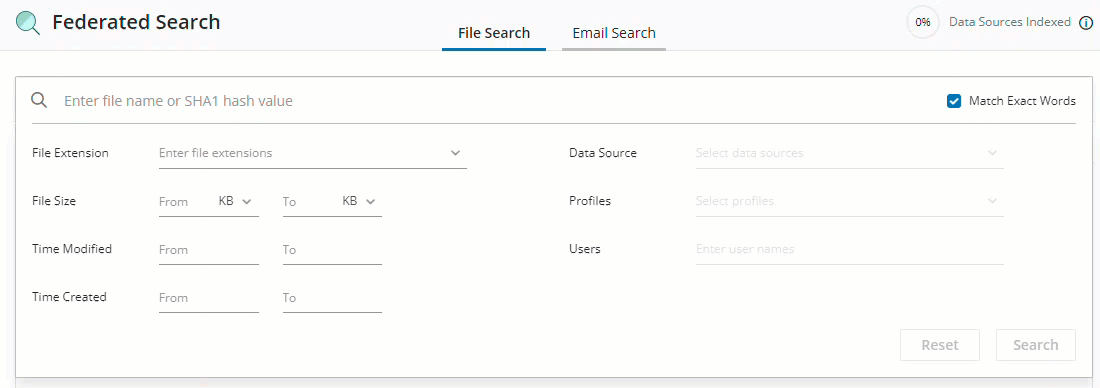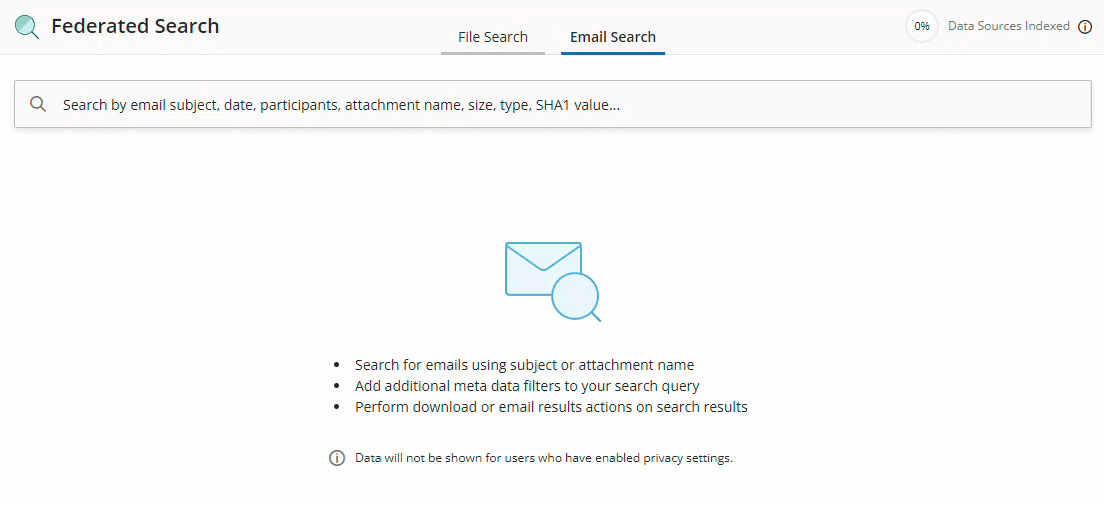Guidelines to search files and emails
Overview
Administrators can use a combination of keywords and operators to build a query that finds the desired files and emails.
For File Search

For Email Search

Here is the list of operators used:
- AND - By default, inSync uses AND in all the search queries that contain more than one word. For example, if you search "monthly AND sales" or “monthly sales”, then inSync will search all the files and emails that contain both the words "monthly" and "sales".
- () - Parenthesis: The part of the search query in the parenthesis is executed first. Example, if the query is "quarterly OR report (march AND december)", then the "(march AND december)" part of the query will be executed first.
- OR - inSync also uses OR in the search queries that contain more than one word. For example, if you search "monthly OR sales", then inSync will search all files and emails that either contains the word "monthly" or the word "sales".
The following are examples that help understand how the operators work:
Example: Search query entered - Dear AND Sir OR Madam
In this case, inSync will search and find filename/email subject that contains both “Dear” and “Sir” as well as the filename/email subject that contains both “Dear” and “ Madam”.
Example: Search query entered - (Dear AND Sir) OR Madam
In this case, inSync will search and find filename/email subject that contains both “Dear” and “Sir” as well as the filename/email subject that contains “Madam” with and without “Dear” and “Sir”.
Things to consider
- This is a prefix-based search. While searching for a filename, the search keyword must contain the prefix text of the filename. For example, to search for “NewToken” filename, the search will work only if the query contains the keyword “New”.
- Operators must always be entered in capital letters. If you use any other variation of the operators in your search query, inSync considers them as a keyword of the search query. For example, in the Sales And Marketing search query, And is considered as a search keyword.
- By default, the Match Exact Words checkbox is selected. In this case, you can use keywords less than 3 characters in a search query and each keyword must match the different words in the file exactly. For example, to search Q1 results.txt filename, with the Match Exact Words checkbox selected, you can use “q1”, “q1 results, or “results” as the keyword.
- If the Match Exact Words checkbox is not selected, all characters in a search query should at least contain 3 characters. For example, "qu" or "quarterly re" are invalid search queries whereas "qua" or "quarterly rep" are valid search queries.
- You can use a maximum of 12 keywords in the search query.

